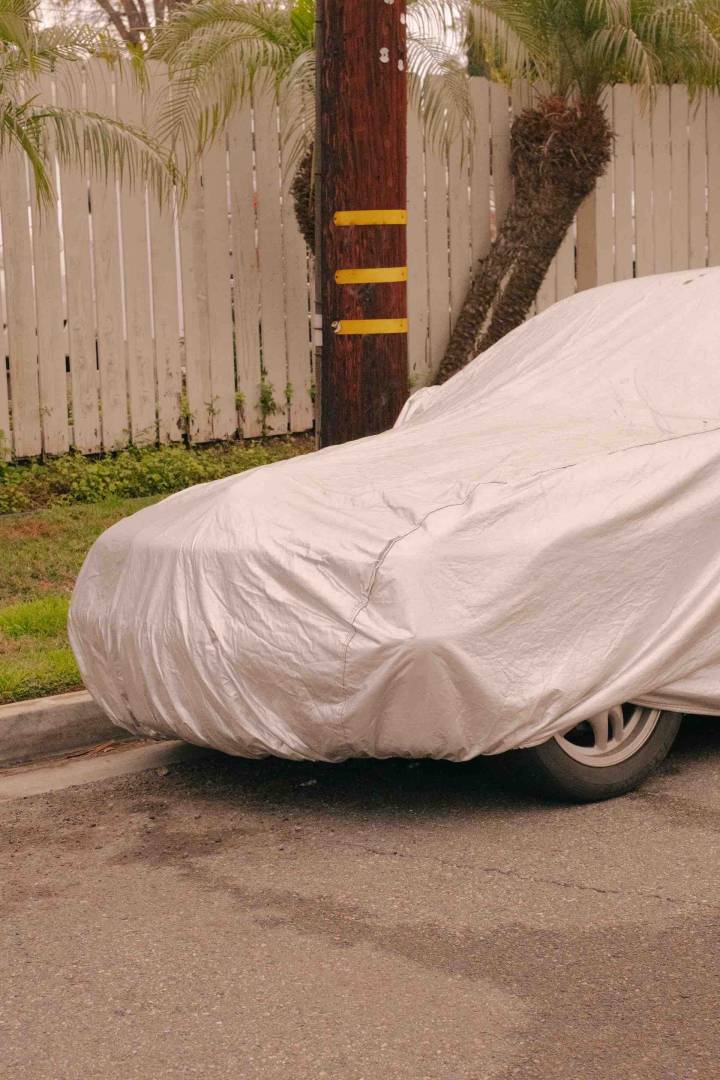SORN Explained: How To Use Car Storage In The UK
In this guide, we'll explain a SORN's meaning, how you get one, and how it affects your car storage decisions. Keep reading to learn more about the ins and outs of SORN and car storage in the United Kingdom.
Find Car Storage
Browse long term Car Storage for rent
Find Car StorageWhat is a SORN (Statutory Off Road Notification)?
A Statutory Off Road Notification, or SORN, is a declaration you make to the Driver and Vehicle Licensing Agency (DVLA) to let them know you are taking your vehicle off the road and will not be using it.This lets the DVLA know that your car is being stored and will not be driven on public roads.
Here's what you need to know about SORN:
- It's a legal requirement if your vehicle is not taxed or insured, and you're not using it on public roads.
- It helps you avoid paying unnecessary road tax and insurance when your car is not in use (like when using long term car storage).
- Even if you keep your car on private property, unless you have a SORN, you still must pay road tax. In other words, it's better to just get a SORN!
- Once you have a SORN, you don't need to do the normal MOT checks, because the vehicle is not being used on public roads.
When Do You Need a SORN?
Here's when you need to get a SORN for your car:- Long term car storage: If you're planning to store your vehicle for a long time and won't drive on public roads (for example, storing a classic car)
- Uninsured vehicle: If your car insurance expires or is cancelled, and you don't plan to renew it or use the vehicle on public roads.
- Expired road tax: If you decide not to renew your road tax and your vehicle won't be driven on public roads.
- No valid MOT: If your car fails its MOT and you don't get the required repairs and retake your MOT.
- Scrapping or dismantling: If you want to scrap or dismantle your vehicle and it won't be used on public roads, you also need a SORN
Related
Classic Car Storage - Everything you need to consider
How to Obtain a SORN
Applying for a SORN is a straightforward process. The Driver and Vehicle Licensing Agency (DVLA) is responsible for issuing SORNs un the UK. You can apply online, by phone, or via post:- Online: Visit the DVLA SORN application portal and provide the required information, including your vehicle's registration number, make, model, and 16-digit reference number from your vehicle tax reminder letter (V11) or the 11-digit number from your vehicle logbook (V5C).
- Phone: Call the DVLA at 0300 123 4321 and provide the necessary details. Phone lines are open from Monday to Friday, 8 am to 7 pm, and Saturday, 8 am to 2 pm.
- Post: Complete the V890 application form and send it to the DVLA, along with the appropriate section of your V5C logbook, to the following address:
Swansea
SA99 1AR

How much does a SORN cost?
There is no fee for obtaining a SORN. You only need to provide the necessary information and complete the application process.A SORN remains valid indefinitely, as long as the vehicle remains off the road. If you decide to use your vehicle on public roads again, you must tax and insure it and ensure it has a valid MOT before cancelling the SORN.
The Consequences of Not Getting a SORN
Failing to obtain a SORN when required can lead to penalties and fines. Here's what can happen if you don't get a SORN:- Automatic fines: If the DVLA's records show that your vehicle is not taxed or insured and doesn't have a SORN, you'll receive an automatic penalty of £80. If you don't pay the fine within 28 days, it can double to £160.
- Court fines: If you don't pay the automatic fine, you could be taken to court. Court fines for not having a SORN can be up to £1,000.
- Vehicle clamping: The DVLA or a local authority can clamp your vehicle if it's parked on public roads without a valid road tax, insurance, or SORN. You'll have to pay a release fee and provide proof of valid road tax or insurance to get your vehicle released. If you fail to do so within a specified time, your vehicle may be impounded or even disposed of.
Related
Parking Rules in the UK 2022
What You Don't Need to Worry About When Using Car Storage
When you have a SORN in place and are using car storage, there are a few things you can cross off your list of concerns. Here's what you don't need to worry about when you have a SORN for your vehicle:- MOT: Since your vehicle is not being used on public roads, you don't need a valid MOT certificate. However, if you decide to put your car back on the road, you'll need to ensure it has a valid MOT before doing so.
- Road tax: With a SORN, you're exempt from paying road tax, as the vehicle is not in use on public roads. Remember to obtain a SORN before your road tax expires to avoid penalties.
- Car insurance: While it's not legally required to have insurance for a SORN vehicle, you might still consider getting a basic insurance policy to protect your car from theft, fire, or damage during storage.

Deciding Between On-Road Parking and Car Storage Solutions
When it comes to storing your vehicle, you have two main options: keeping it parked on the road or using a dedicated car storage solution. Both options have their advantages and disadvantages, so it's essential to weigh the pros and cons before making a decision. Here's a comparison table to help you decide what's best for your situation:
| Option | SORN Required | Length of Time | Pros | Cons |
| On-Road Parking | No | Recommended for <3 months |
|
|
| Car Storage Solutions | Yes | Recommended for >3 months |
|
|
Ultimately, the choice between on-road parking and car storage solutions depends on your specific needs, budget, and priorities.
If your main concern is convenience and cost, and you're storing your vehicle for less than three months, on-road parking might be a better option.
However, if you're looking for more security and storing for more than 3 months, dedicated car storage solutions are worth considering (you'll need to obtain a SORN!)
Related
8 Easy Tips for Storing Your Car Long Term
Essential Admin Tasks Before Long-Term Car Storage
Before storing your car long term, it's crucial to complete a few essential administrative tasks to ensure your vehicle remains in good condition and complies with legal requirements.Here's a checklist of tasks to complete before putting your car into storage:
- Obtain a SORN: If you're using car storage solutions for more than three months, apply for a SORN to avoid paying unnecessary road tax and insurance while your vehicle is off the road.
- Check insurance coverage: While it's not legally required to have insurance for a SORN vehicle, consider getting a basic insurance policy to protect your car from theft, fire, or damage during storage.
- Prepare your vehicle: Clean your car inside and out, check fluid levels, and inflate the tires to the recommended pressure. Disconnect the battery or use a battery maintainer to prevent it from going flat. You may also want to use a car cover for additional protection. Here are some more tips for how to prepare your car for long term storage.
- Update your address: If you're moving or storing your vehicle at a different location, update your address with the DVLA and your insurance provider to avoid any potential issues.
- Take photographs: Document the condition of your vehicle with photographs before storage. This can help resolve any potential disputes with the storage provider or insurance company in case of damage or theft.
- Make a note of expiry dates: Keep track of your vehicle's MOT, road tax, and insurance expiry dates. If you decide to put your car back on the road after storage, you'll need to ensure these are up to date.
Looking for a garage for long term car storage? At Stashbee we have thousands of them, all over the country.
Find Car Storage
Browse long term Car Storage for rent
Find Car StorageAnthony
Written 3rd May 2023
